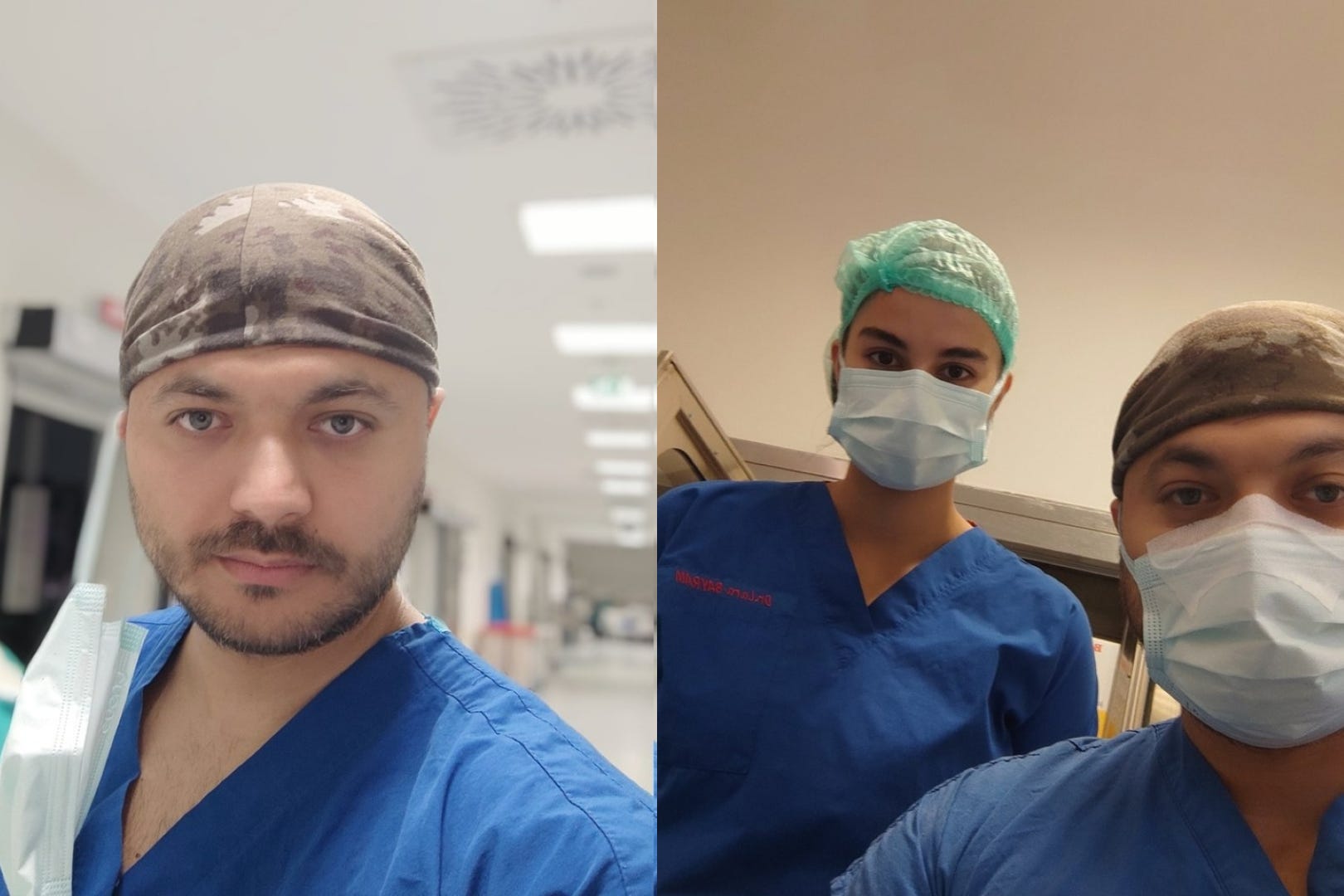Turkish surgeon describes ‘hardest days in career’ treating earthquake victims
Noyan Dirlik has been performing limb amputations daily at his hospital, which has had to stop elective surgeries to deal with an influx of victims.

A surgeon treating the “shocking” injuries of people crushed following the earthquake in Turkey has described the last week as the “hardest days” in his career.
Noyan Dirlik, a 33-year-old from Alanya, Turkey, works as an orthopaedic surgeon at Alanya Training and Research Hospital, a city a few hundred miles west of the disaster zone in Gaziantep and Kahramanmaras which has had to stop elective surgeries to deal with an influx of earthquake patients.
He said those crushed by debris frequently require limb amputations and removals of dead tissue, often needing “miracles to survive”.
“Patients continually come in – it’s getting worse,” Mr Dirlik told the PA news agency.
“I’m planning to stay strong, but it is near impossible because hearing children crying, mothers crying, because they all lost their relatives – it’s very hard.
“They are all broken spiritually, they need miracles to survive.
“You can’t ask people, how are you, and you can’t question them because they are not OK.”
They want to go to their relatives under the rubble, but there is no hope. There was such desperation on their faces
Mr Dirlik operates on three or four patients daily and his hospital had to stop elective surgeries to provide more room and space to those affected.
He said it is common for those who have been trapped in the rubble to suffer from compartment syndrome – a condition where there is a restriction of blood flow in certain limbs around the body, according to the NHS.
“It refers to an increase in pressure of an extremity (a limb of the body) and the resulting deterioration of blood supply to the extremity; if we don’t act immediately, we could lose the extremity,” he said.
Mr Dirlik added that the impact of the earthquake will have a long-term effect on people as many were looking “so helpless” after coming to terms with losing their homes, friends and relatives.
“It was as if they had seen a ghost, they were frightened, and that expression was just like that on their faces. Death and destruction entered their cities,” he said.
“They have such a look that their families are destroyed, their relatives are gone, they cannot bring them back.
“Their arms and legs are smashed but they almost don’t care.
“They want to go to their relatives under the rubble, but there is no hope. There was such desperation on their faces.”
He added that the Turkish government is working hard to help people.
“But it is impossible to help everyone because roads are broken, there is a lot of damage and collapsed buildings,” he said.
“Although we ask for help from the whole world and mobilise all our resources, it is not possible to intervene in most of the buildings in the first 48 hours.
“Thousands of people were left to die unintentionally.
“Maybe one or two will survive but others will remain under the building.”
Mr Dirlik has called for the Turkish government to implement an early warning system and earthquake prevention methods across Turkey.
Bookmark popover
Removed from bookmarks